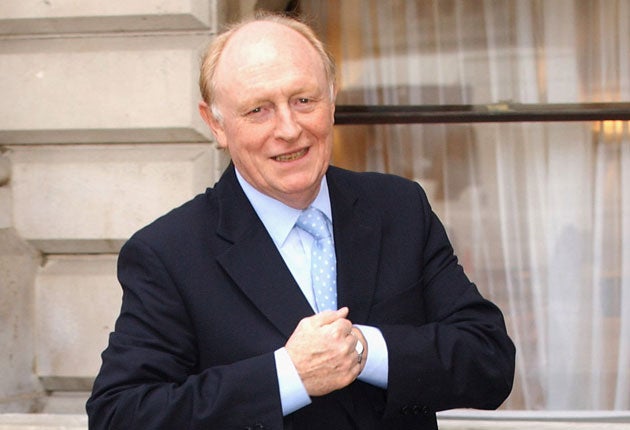Andrew Grice: Revenge is sweet for politicians as they hit back at newspapers
Inside Westminster

The former Cabinet minister bounded up to me with a glint in his eye.
"Hacking is the press's equivalent of our expenses scandal," he barked with relish. It was one of several such conversations.
"Who says we can't have statutory regulation?" another former minister told me. "It would be easy. All you do is write the [newspaper industry's] code of practice into the law of the land."
I have been surprised by the thirst for revenge displayed by politicians following the phone-hacking scandal.
Some still nurse wounds from the way the expenses affair was reported, believing it was done in the most cynical and corrosive way possible to undermine politics. They have a point, although it was still right to publish.
Many MPs believe newspaper proprietors have enjoyed an unhealthy influence over policy. In the frenzy of the past three weeks, stories have resurfaced about the Murdoch empire's threat to withdraw its support for Tony Blair unless, in a major U-turn, he offered a referendum on the proposed European Union constitution in 2004. He did.
Some newspapers have overplayed their hand. Several senior politicians told me they felt intimidated by what the tabloids might do to their families if they demanded tougher press regulation. "Never underestimate the fear we feel about our wives and children being put in the spotlight," one said.
There are claims of dark threats by editors to do just that. "If you take us on we'll take you and your family on and you won't like it," one former Cabinet member claims he was told.
Lord Kinnock, who can be forgiven for wanting revenge on the Murdoch empire after the way it treated him, is the thirstiest of them all. In a remarkable interview on BBC Radio 4's Today programme on Wednesday, the former Labour leader proposed a "balanced press" with a law to ensure impartiality like the one which applies to broadcasters and to prevent concentration of media ownership.
"We would live in a much freer country," he said.
But would we? That country might not enjoy a free press. The danger is that newspapers would be controlled by Big Brother politicians. Lord Kinnock never got the credit he deserved for paving the way for the New Labour project. But on this I think he's wrong.
His hopes that hacking will be Mr Murdoch's nemesis are understandable. But his interview should serve as a warning to other politicians not to rush into a regulatory system which shackles newspapers and kills the very investigative journalism which exposed hacking in the first place.
There is a bad model to avoid. During the expenses controversy, Gordon Brown, desperate to sweep the stables clean, demanded that responsibility for MPs' allowances be transferred to an independent body. Harriet Harman, Labour's deputy leader, warned him that such a move would end in tears. Most MPs would now agree that she was right; they think the Independent Parliamentary Standards Authority is a bureaucratic nightmare.
An independent press standards authority might sound good now, but could easily throw the baby out with the bathwater. At least David Cameron, Ed Miliband and Nick Clegg hint at independent rather than statutory regulation to replace the current self-regulatory system. The inquiry headed by Lord Justice Leveson will have time to think these matters through. It should remember that Mr Murdoch's Sunday Times had the resources to uncover corruption at football's governing body Fifa, and the now defunct News of the World unearthed a betting scandal involving Pakistani cricketers.
Everyone is putting the boot into the Press Complaints Commission (PCC) and clearly the nameplate will have to change.
Yet some criticism has been unfair. Mr Miliband has started to transform his leadership by making the running on hacking. However, he got his facts wrong when he said a majority of PCC members were from the newspaper industry (seven are, 10 are outsiders). Mr Miliband was on safer ground when he said serving editors should not sit on PCC committees. He wants a new system to include compensation for press victims without them having to play lottery in the libel courts.
The PCC's successor will probably need the right to demand more prominent corrections and impose tougher sanctions against papers which flout the code. It will have to cover the whole industry; Express Newspapers has weakened the current system by pulling out of the PCC. But it is unfair to blame hacking on the failures of the PCC. Of the three bodies that were lied to by News International – the PCC, the Commons select committees and the police – only one had the means to investigate what is, after all, a criminal offence.
Even Tom Watson, the Labour MP who has done so much to expose hacking, supports tougher self-regulation with sanctions. Before rushing to judgment, his fellow MPs should take that very seriously indeed.
Join our commenting forum
Join thought-provoking conversations, follow other Independent readers and see their replies
Comments
Bookmark popover
Removed from bookmarks